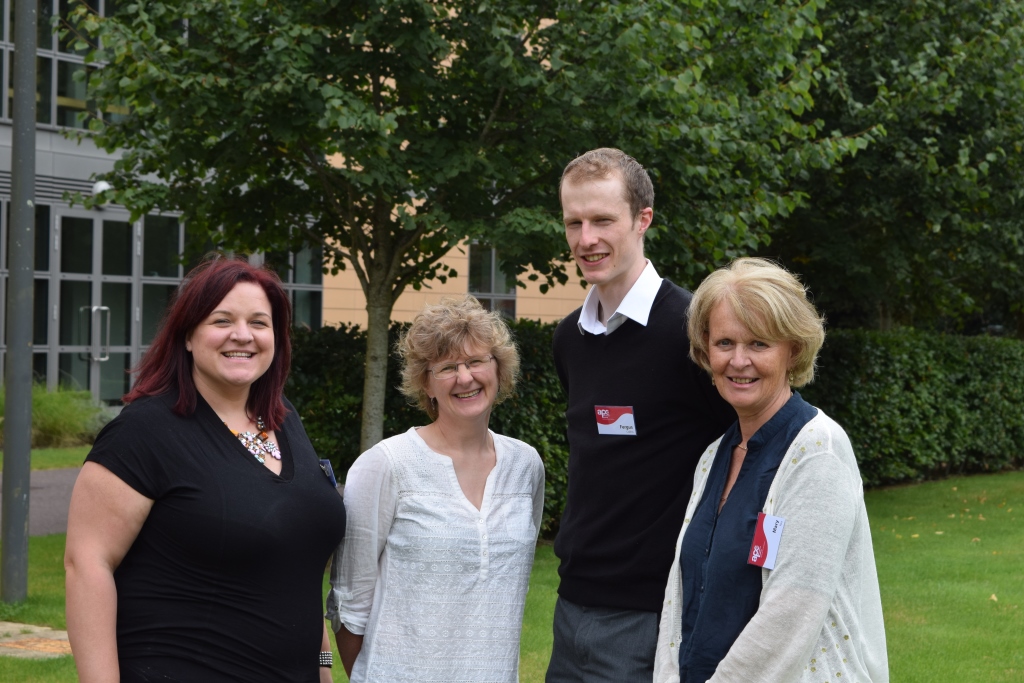In This Section
- Home
- Study Microbiology at UCC
- Postgraduate Research Programmes
- About
- Research
- People
- Academic Staff
- David Clarke, Head of School
- Hilary Browne
- Marcus Claesson
- Sinéad Corr
- Alan Dobson
- Gerald F. Fitzgerald
- Cormac Gahan
- Colin Hill
- John MacSharry
- Jennifer Mahony
- Ruth Massey
- John P. Morrissey
- Fergal O'Gara
- Niall O'Leary
- Liam O'Mahony
- Paul O'Toole
- Michael B. Prentice
- Gaurav Rajauria
- F. Jerry Reen
- Paul Ross
- Francisco Vitor Santos da Silva
- Martina Scallan
- Pauline Scanlan
- Andrey Shkoporov
- Douwe van Sinderen
- Jens Walter
- Technical Staff
- Administrative Staff
- Academic Staff
- Staff Resources
- Postgrad and Post Doc Committees
- School Seminars
- News/Newsletters
- Athena SWAN
- Current Vacancies
- Contact Us
APC scientists develop arsenal of new natural alternatives to antibiotics

Scientists at the APC Microbiome Institute, a Science Foundation Ireland research institute in Cork, have identified an arsenal of new antimicrobials which can kill many harmful bacteria.
The latest antimicrobial, called formicin, is a bacteriocin which is a small bacterially produced antimicrobial protein. The research on formicin has been picked up by the editor of the journal Microbiology where it is highlighted and published this week.
“Formicin was picked up in our most recent screening for new antimicrobials. We have identified 20 new small proteins to date including Thuricin and Lacticin 3147” said Professor Paul Ross, who leads the research with Professor Colin Hill at the APC Microbiome Institute in University College Cork and Teagasc. “We plan to further develop these compounds which have important implications for human and animal health.”
Antimicrobial resistance poses one of the biggest threats to global health today. According to the WHO (2015) antibiotic resistance in the European Union alone, is estimated to cause 25,000 deaths and cost more than US$1.5 billion every year in healthcare expenses and productivity losses. Without effective antibiotics for the prevention and treatment of infections, many of the achievements of modern medicine such as organ transplantations, chemotherapy and surgeries such as caesarean sections become much more dangerous.
“The new antimicrobial, Formicin, was isolated from Bacillus paralichenformis APC1576, a bacteria which was originally isolated from the intestine of a mackerel” said Fergus Collins, the PhD student at Teagasc, Moorepark who discovered Formicin. “Formicin can kill a wide range of harmful bacteria including the Gram positive pathogens Staphyloccous aureus, Clostridium difficile, Listeria monocytogenes and Steptococcus mutans, a causative agent of tooth decay.”
Formicin is a member of a subclass of bacteriocins called lantibiotics which contain certain modified amino acids. Formicin is made up of 2 lantibiotic peptides. The first peptide likely binds to the cell membrane of the bacterial target and subsequently recruits the second formicin peptide which then inserts into the membrane; the resulting pore formed then causes cell death. Formicin is unique among lantibiotics due to differences in the peptide’s charge and composition.
This research was supported by Science Foundation Ireland through a Research Centre grant to the APC Microbiome Institute.
Full reference:
Formicin - A novel broad spectrum two-component lantibiotic produced by Bacillus paralicheniformis APC 1576
Collins F.W., O’Connor, P.M., O’Sulllivan, O., Rea, M.C., Hill, C. and Ross R.P. Microbiology, September 2016 162: 1662-1671, doi: 10.1099/mic.0.000340
http://mic.microbiologyresearch.org/content/journal/micro/10.1099/mic.0.000340#tab2
Abstract: http://www.ncbi.nlm.nih.gov/pubmed/27450592
For further information please contact Professor Paul Ross; p.ross@ucc.ie; tel 021 4903760; +353 (0)87 9905337 or Dr Catherine Buckley, Communications & Outreach Manager, APC Microbiome Institute, University College Cork. Mobile 086 8554744; c.buckley@ucc.ie
School of Microbiology
Scoil na Micribhitheolaíochta
Contact us
Microbiology Office, Room FSB452, 4th Floor Food Science & Technology Building, University College Cork, Cork T12 Y337
